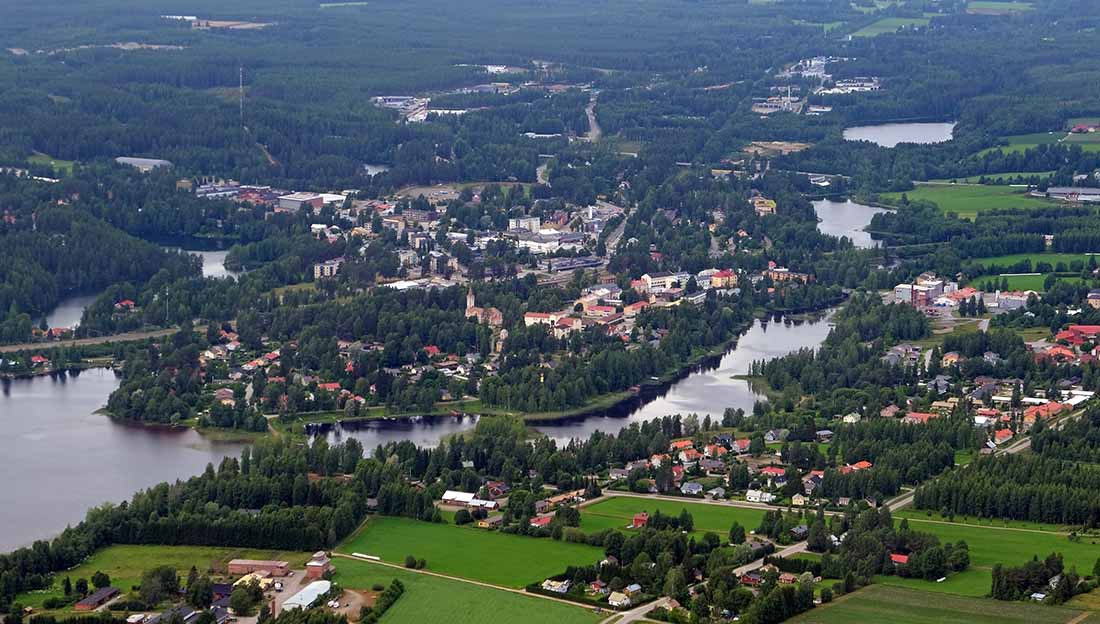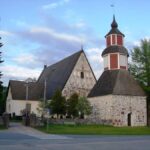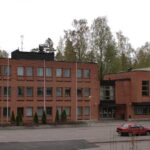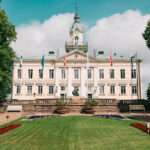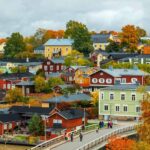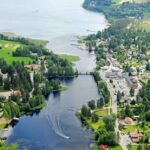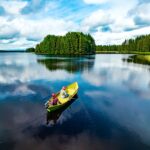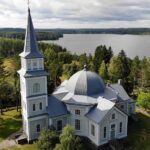Various international studies have shown that the Finnish education system is one of the best in the world, yielding remarkable results for the future lives of students. If you decide to live in Finland, the schools in the city of Suonenjoki Finland can be a great host for you.
The Finnish Education System
One of the fundamental aspects of Finland’s successful education system is its teachers. In general, becoming a teacher in this country is not so easy, as competition is high, and it requires completing various educational courses. After obtaining a degree, another examination awaits young applicants. In this exam, they must compete with 40 other candidates for each school to secure a teaching position. People in Finland hold great respect for teachers, and it’s considered one of the very prestigious professions in the country. High salaries, societal respect, freedom in teaching methods and approaches, among other benefits, are some of the perks of teaching in Finland.
The foundation of Finland’s school system is trust: trust between the community, students, and parents in the teacher and vice versa. Finnish schools also receive full government support. The basis of the school is culture and teamwork. All students have equal rights: every child, regardless of their background (rural/urban), wealth, or abilities, has equal and high-quality access to education. In school, children must show respect to others, including teachers, classmates, younger and older students.
Happier Children Learn Better
Finns believe that children should have a happy childhood. Children should enjoy playing, making friends with peers worldwide. The primary duty of elementary school is to teach children these values and prepare them for secondary school. In Finland, children do not learn several foreign languages, play tennis, swim, or play the violin from the age of three, as in other countries that enroll their children in various classes regardless of their interests.
Introduction to the City of Suonenjoki Finland
The city of Suonenjoki, Finland, is located in the western part of Northern Savonia Province and has a population of 6,858. The city’s area is 862.34 square kilometers, of which 148.78 square kilometers are water. The neighboring cities of Suonenjoki include Kuopio, Leppävirta, Pieksämäki, Rautalampi, and Tervo. The central station of Suonenjoki is located near a river called Suonenjoki. Suonenjoki is famous for its strawberry fields.
Suonenjoki Railway Station
Highway 9, passing by Suonenjoki, provides good road connections to Kuopio and Jyväskylä, which can be easily reached by private car. In addition, this city has good rail connections, and several trains pass through it daily. In January 2006, train travel to Helsinki and Kuopio became possible. Buses to Jyväskylä, Kuopio, Rautalammi, Karttula, and Mikkeli also depart from this city.
History
In the Suonenjoki area, ceramic findings indicate an ancient settlement dating back to around 2500 to 2000 BC. At that time, mainly the Sami people who had migrated northward had settlements in this area. It is likely that in 1323, Suonenjoki served as a border marker for the Pahkinäsaari Peace. In the 16th and 17th centuries, more people moved to this region, and in 1811, the first major church of the region was constructed.
The current Suonenjoki church was completed in 1865, replacing the first church built at the end of the 18th century. In the early 20th century, the sawmill industry became the most important industry in the region. Blueberry cultivation became popular in the 1940s, and Suonenjoki became known as the Blueberry Town. The Suonenjoki school began its activities in 1930 and moved to a new building in 1950. Due to a lack of space, an additional building was constructed in the school in 1956.
Public Educational Institutions in the City of Suonenjoki Finland
Suonenjoki has four primary schools and one high school. Two primary schools are located on one side of the city, and two others are located on the other side. The city’s comprehensive high school accepts students from all over the region.
Sports and Leisure in the City of Suonenjoki
Several sports clubs are active in the city, with the largest ones being Suonenjoki Kiekko-Karhut (SuKiKa) and Suonenjoki Pallo (SuPa), as well as the public club Suonenjoki Vasama, founded in 1908. SuKiKa is a sports club focused on ice hockey. SuKiKa also has a comprehensive youth program, where each age group typically has a team, and those who turn 17 often move on to Team A or other teams.
SuPa is a football club founded in 1952. This club offers various services for different age groups. During the summer, enthusiasts of disc golf and minigolf can practice on the central field in Suonenjoki, which has standard facilities. In addition to the central field, there is also the opportunity for free tennis playing in the morning and afternoon. There is also a baseball field next to the central field and an 18-hole golf course.
Aside from the Lintharju sports hall’s swimming pool, the city offers swimming beaches at Kaatronlamme and Kokkolamme, as well as an open-water swimming spot on the Suonte shore in Soitunlahti. The Kaatronlammi pool also features a diving board and a water slide. Suonenjoki has a karting track.
City Festivals
Several major summer events are held in Suonenjoki, offering enjoyable participation. The most significant festival is the Blueberry Carnival, which takes place in the second week of July. In this carnival, the peak of blueberry picking season is celebrated, and thousands of local residents, blueberry pickers, and tourists from around the world participate. This event was first held in 1970 and has been held every year (with a few exceptions) since then.
Sights in the City of Suonenjoki Finland
Suonenjoki has nine sculptures and historical buildings, with the most famous being the Mansikkatytöt sculpture in front of Suonenjoki City Hall and a memorial plaque dedicated to the Pahkinäsaari Peace on the shores of Suonenjoki, next to the Kruun Bridge.
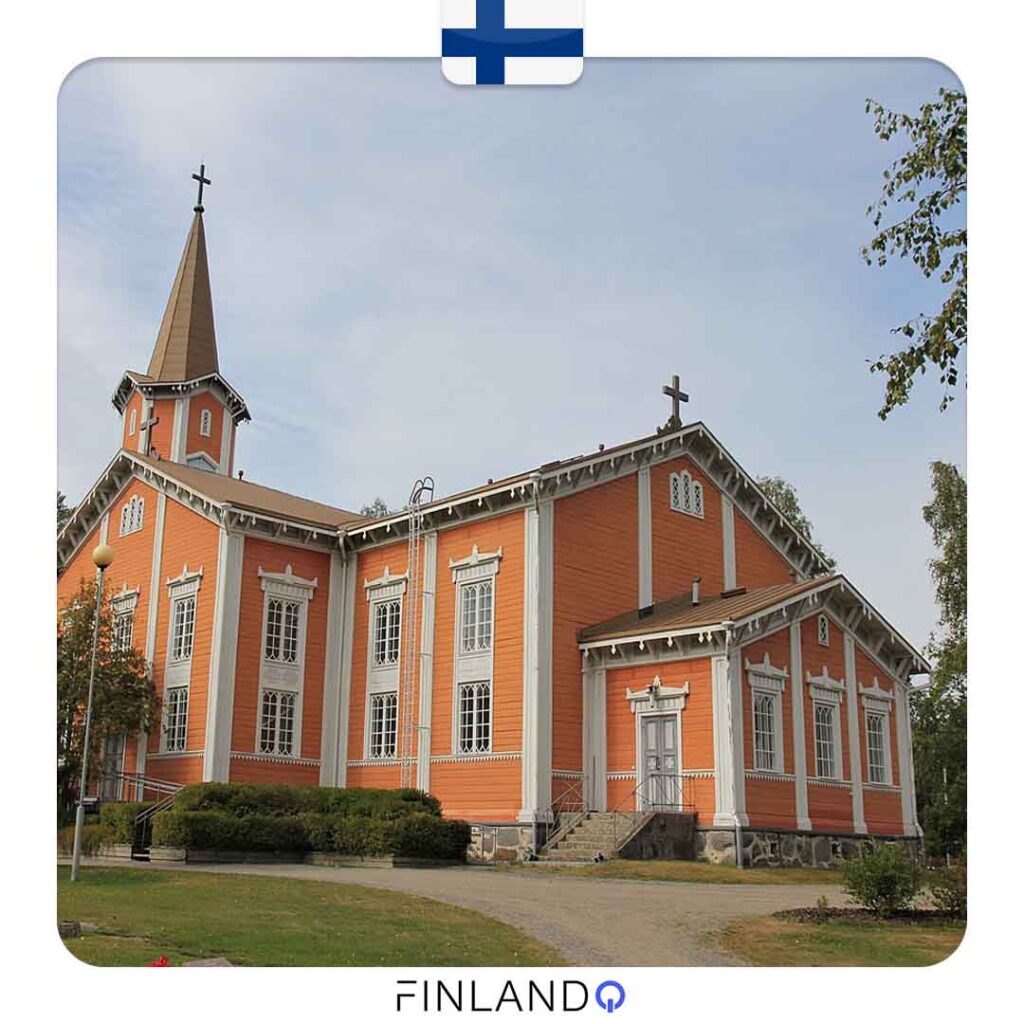
Introduction to Suonenjoki High School, Finland
Suonenjoki High School offers high-quality secondary education. The school provides various subjects, allowing each student to choose the best field according to their preference. Besides school education, there is an opportunity to participate in specialized courses like entrepreneurship to prepare students for the job market. Foreign languages, mathematics, sciences, humanities, and practical and artistic subjects are among the fields covered by the high school. The new sports center built in the city provides diverse sports opportunities.
Free School Facilities
Starting from August 1, 2021, the following are free for all students:
- Tuition
- Daily meals
- Textbooks and other necessary teaching tools
- Tools and clothing required for teaching
- School trips
In some special cases, accommodation and travel expenses to more distant areas are also covered. Personal equipment needed for courses that emphasize specific hobbies, such as musical instruments and sports equipment, is still the responsibility of the students.
If you need advice on immigrating to Finland, you can speak with our experts at the FinlandQ group and get the necessary guidance.

